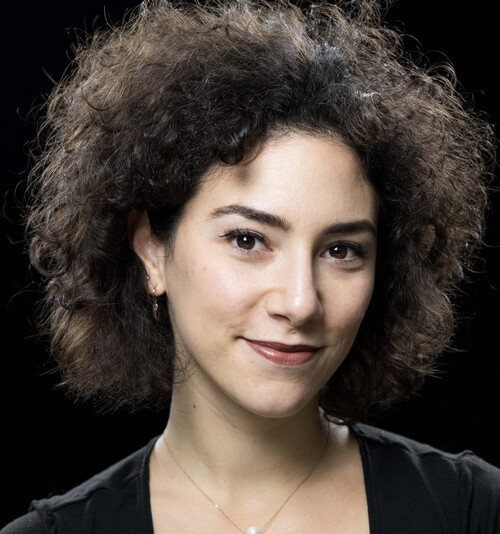Argyro Nicolaou

A 112-mile UN Buffer Zone divides Cyprus in two, with Turkish Cypriots in the north and Greek Cypriots in the south. Tensions between the Greek and Turkish Cypriot communities have existed since the early 1900s, but in 1974, following a pro-Greek unification coup and an invasion by the Turkish army, the buffer zone was established and an estimated 160,000 to 200,000 Cypriots were internally displaced along ethnic lines. One of those displaced Cypriots was Argyro Nicolaou’s mother.
Growing up, Nicolaou, a PhD candidate in comparative literature with a secondary field in critical media practice, would hear her mother’s stories about the other half of Cyprus. “As a second-generation displaced person, you’re made aware of another mode of being and of this place that you’re supposed to want to return to,” she explains.
“We all have internal concepts of our country and how we plot it on a map,” Nicolaou says. Nicolaou has only experienced a divided Cyprus, but her mother knows what the island was like before it was split in two. Nicolaou finds the tension between the internal map of Cyprus that her mother pictures and the current geopolitical map of the island fascinating. And this tension is not exclusive to Cypriots: it can be found in the narratives of other displaced persons.
“Migration triggers a clash of cultures—X vs. Y, West vs. East,” Nicolaou explains. “But behind that story are the narratives of people who are actually moving, and these show a much more complex history.” To explore these blurred geographies, Nicolaou is focusing on 20th-century narratives of migrants in the Mediterranean region, such as the work of the Greek-Egyptian writer Stratís Tsírkas who was displaced to Jerusalem during World War II.
“The Mediterranean has always been this shared space,” Nicolaou says. “A map will show that Europe ends here, the Middle East ends there, and Africa ends here, but migrations in the Mediterranean really blur these boundaries.” According to Nicolaou, because they’ve experienced different places and cultures, migrants are able to create alternative geographies. “They carry with them a very different understanding of geography than what the map shows,” she says. “By looking at these narratives, I’m able to tell stories that are usually ignored for easy stereotypes of North vs. South, Christian vs. Muslim and European vs. Arab.”

